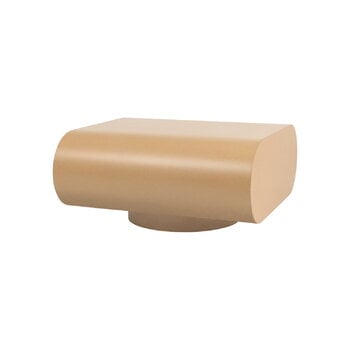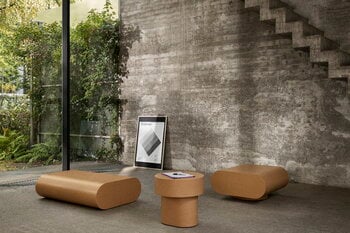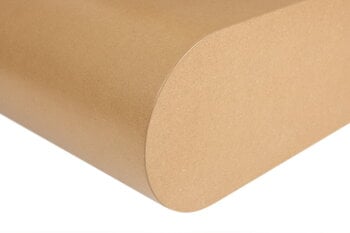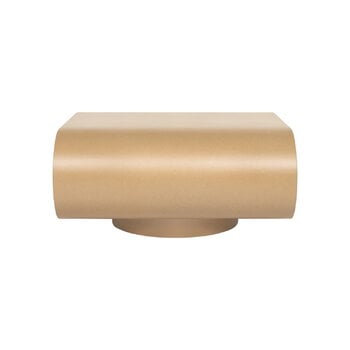The Stump side table, designed by British designer Faye Toogood for Hem, has a sculptural and curved appearance. The Stump collection was inspired by Faye Toogood's interest in creating beautiful round shapes without using solid wood. The tables are made from natural wood-coloured MDF to look as if they have been carved from a single piece of wood. This is where the name "Stump" comes from.
The simple, elegant table blends easily into any surroundings. The solid and elegant square-shaped Stump coffee table will sure catch the eye in your living room.















